How to store coins – the full guide
Read our complete guide on how to protect and store your coin collection to prevent future damage and preserve them for centuries to come. Whether you have a small collection at home or need to store them in bulk, the principles are the same and we’ll start right at the beginning.
Should you clean your coins before storing them?
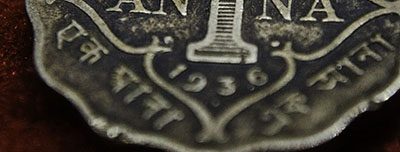 Generally, the advice for amateur collectors is not to clean coins. The action of cleaning can actually devalue the coin due to damage caused as a result (scratches, coatings applied etc). However, surface greases from handling can cause further tarnishing while in storage. For coins that are generally clean, with no soil or heavy deposits, grease can be safely cleaned away gently using a lint free cloth like the Arcare Dust Bunny cloths. It is always best to consult a specialist conservator before commencing any work.
Generally, the advice for amateur collectors is not to clean coins. The action of cleaning can actually devalue the coin due to damage caused as a result (scratches, coatings applied etc). However, surface greases from handling can cause further tarnishing while in storage. For coins that are generally clean, with no soil or heavy deposits, grease can be safely cleaned away gently using a lint free cloth like the Arcare Dust Bunny cloths. It is always best to consult a specialist conservator before commencing any work.
If you do wish to clean your collection and you are not concerned about any associated risks of devaluation, you could use pre-lim surface cleaner and finish with a coat of renaissance wax to restore that freshly minted lustre.
You can prevent depositing oils from your fingers onto the coins surface by wearing nitrile finger cots.
Should coins be put into envelopes or pockets?
Envelopes and pockets protect coins when being handled and when in storage protect from dust and scratches. Coins that are not enclosed in a pocket or envelope are far more susceptible to damage, so the answer is yes.
How do you choose the right envelope or pocket for your coins?
First things first. Whatever enclosure you select to place your coins into, the material must be acid free, and here’s why.
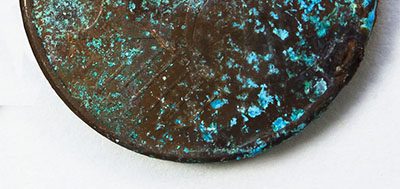 There are a number of plastics used to make coin storage. Polypropylene, Polyester and PVC are the common types. PVC is generally not acid free, PVC will eventually break down and become acidic - it is not 'inert'. As it degrades, PVC will become yellow, cloudy and brittle, off-gassing acids into the storage environment. This may lead to a green, sometimes sticky residue on coins, with possible permanent staining and corrosion making the coin's value reduce considerably. Due to PVC being unsuitable and unstable, some collectors believe that all plastics are unsuitable, this is not the case. It's important to remove coins from any PVC 'flips', pockets or wallets immediately.
There are a number of plastics used to make coin storage. Polypropylene, Polyester and PVC are the common types. PVC is generally not acid free, PVC will eventually break down and become acidic - it is not 'inert'. As it degrades, PVC will become yellow, cloudy and brittle, off-gassing acids into the storage environment. This may lead to a green, sometimes sticky residue on coins, with possible permanent staining and corrosion making the coin's value reduce considerably. Due to PVC being unsuitable and unstable, some collectors believe that all plastics are unsuitable, this is not the case. It's important to remove coins from any PVC 'flips', pockets or wallets immediately.
So, some plastic storage is OK for coins, what should you choose?
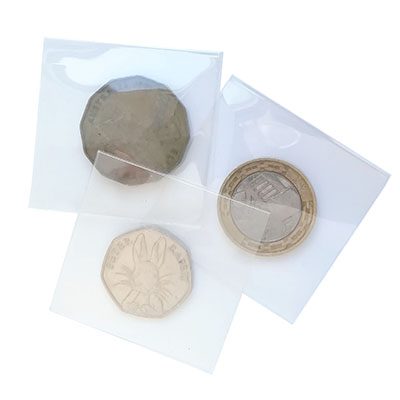 Archival polyester (boPET) is inert, strong and acid-free, it will not degrade like PVC. Our coin pockets are made from archival polyester, sometimes known by the brand names ‘Mylar’ or ‘Melinex’. Our polyester coin pockets are completely glass clear, will remain glass clear, and ideal for storing coins and maintaining visibility. Because the pockets are perfectly clear the need for handling is reduced as the coin can be seen without removing it from the pocket. Polyester is a stiffer material and retains contents more firmly than other films. Our pockets are welded on the edges forming a very strong tear-resistant seam.
Archival polyester (boPET) is inert, strong and acid-free, it will not degrade like PVC. Our coin pockets are made from archival polyester, sometimes known by the brand names ‘Mylar’ or ‘Melinex’. Our polyester coin pockets are completely glass clear, will remain glass clear, and ideal for storing coins and maintaining visibility. Because the pockets are perfectly clear the need for handling is reduced as the coin can be seen without removing it from the pocket. Polyester is a stiffer material and retains contents more firmly than other films. Our pockets are welded on the edges forming a very strong tear-resistant seam.
View coin storage pockets here
Acid free polypropylene is also suitable and available as binder storage pages which can be seen here. Polypropylene is less clear than polyester and is generally softer.
But what about paper coin envelopes?
Paper coin envelopes, like ours which can be seen here, are perfectly acceptable for coin storage provided the material is acid-free and sulphur free. This also needs to apply to any glues present in the envelope. Sulphur can attack silver and copper in coins causing them to turn black. Paper envelopes can be easily written upon for identification. For obvious reasons, paper envelopes prevent coins from being viewed without being removed, this could lead to additional risks when handling i.e. being dropped!
Storing coins in a box
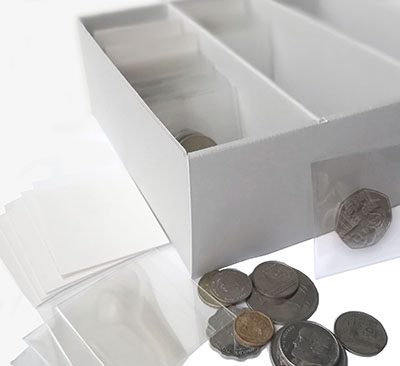 Once your coins are enclosed in an envelope or pocket (wallet, sleeve etc.) they should be stored somewhere that they are safe from accidental damage. Damage can be caused by handling and external factors such as pollution, leaks and floods, or theft and vandalism.
Once your coins are enclosed in an envelope or pocket (wallet, sleeve etc.) they should be stored somewhere that they are safe from accidental damage. Damage can be caused by handling and external factors such as pollution, leaks and floods, or theft and vandalism.
- Storing your coins in an acid free box is the next step in providing the collection a good level of protection from damage. The material the box is made from is also important, PVC can off-gas acids into the stored environment, the same can also happen with wood and painted surfaces like enamel.
- If using a flocked finish in a drawer or tray, this also needs to be inert and free from acid and should not off-gas. Pacific silver cloth is an ideal material to prevent silver coins from tarnishing. Plastazote is an acid free foam that can line drawers.
- It’s important you can organise your collection and using indexing cards can help prevent damage by reducing the amount of handling your coins will experience. An unorganised collection will be handled more and therefore risks are higher.
- Coin collections can become quite heavy and large boxes can become difficult and awkward to lift. Our coin collection box will hold up to around 250 coins and is of a size that can easily be placed into a normal sized safe. It is better to bulk store coins in multiple boxes than placing into a single box. You can use Plastazote acid free pads to make sure your collection is packed securely and won't move inside the box. When storing a valuable coin collection at home it’s important that you can easily secure them in a standard sized safe, not everyone has access to a strong room!
Where should you store your coins?
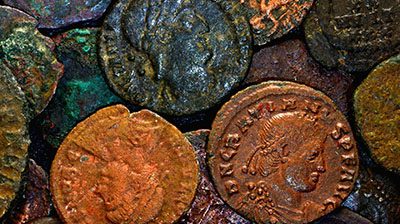 As with almost all collections the storage area you choose can influence the condition of your collection. Here are a few tips to try and help you select the most suitable place to store your collection.
As with almost all collections the storage area you choose can influence the condition of your collection. Here are a few tips to try and help you select the most suitable place to store your collection.
- Keep away from potential sources of leaks such as pipes, windows, roof spaces etc. An undetected leak could cause irreversible damage.
- Protect from extremes of temperature. The surface of a metal coin could encourage condensation to form when the temperature moves quickly from cold to warm. This means roof spaces, unheated outhouses/rooms etc. are not suitable.
- Avoid areas of high humidity such as conservatories, cellars/basements, bathrooms, kitchens etc. Don't store against a cold wall.
- Physical protection should be offered for valuable collections. Valuable collections should be placed into boxes that can be easily stored in a safe.
- Keep away from sources of air pollution such as paint fumes, exhaust fumes etc. High levels of airborne pollutants such as sulphur can affect collections.
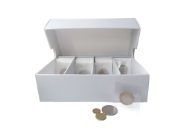
Our coin storage system has been designed to offer the best-in-class coin storage, completely acid free and perfect for placing in a a safe or on a shelf. You can see the coin storage system here.
View the coin storage box system here